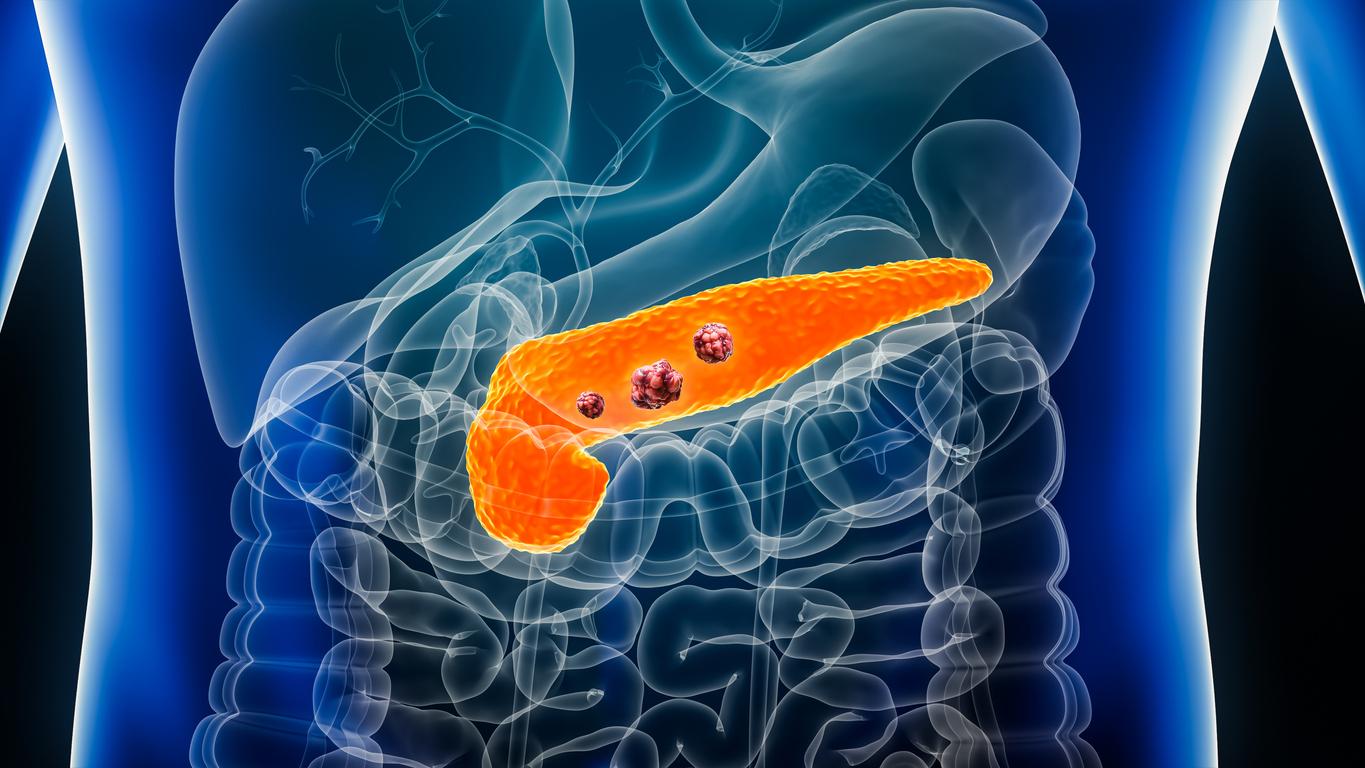According to the National Academy of Surgery, pancreatic cancer – the incidence of which has been steadily rising in recent years – could become the second leading cause of cancer death by 2030 in Europe.

- The incidence of pancreatic cancer increases by 3% each year.
- Pancreatic cancer could be the 2nd leading cause of cancer death by 2030.
- Pancreatic cancer is the only cancer that has not recorded a decrease in mortality.
I’National Academy of Surgery took advantage of its oncology day dedicated to pancreatic cancer to take stock of this disease, of which around 15,000 new cases and 6,000 deaths are recorded per year on average. First worrying observation: its incidence has been steadily increasing for two decades.
Pancreatic cancer: an increase in incidence of 3% each year
Pancreatic cancers are on the rise in the Western world. The incidence of this disease is increasing every year by 3%. “Pancreas cancer should thus become the second leading cause of cancer death in our countries in the 2030s, after bronchopulmonary cancers”warned Pr Louis de Mestier, doctor in the gastroenterology and hepatology department of Beaujon Hospital during the press conference.
But could the increase in cases recorded in recent years not be explained by the improvement of screening tools? Pr. Vinciane Rebours of Beaujon Hospital partly rejects this idea. “Certainly the screening tools are better and can explain a small part of the increase in incidence observed. But this element is really in the minority because when recording the doubling of incidence between 2000 and 2006 and then again between 2012, we already had good radiology tools at the time”.
For her, the increase is mainly due to “paradigm shifts” in the 2000s. She notes that since this period, the incidence of obesity and diabetes has increased sharply to now reach 49% of French people. These two elements are important risk factors for the disease. “The ultra-processed diet probably plays a role as well as tobacco and the aging of the population. It is thus mainly multifactorial”added the expert.
Pancreatic cancer: unabated mortality
Pancreatic cancer is unfortunately often bleak. First, the disease, silent, is generally discovered late. Moreover, it is a systemic cancer. That is to say, cancer cells present in the organ can quickly migrate into the blood. “The cancer thus does not stay long at a local stage,” lamented Dr. Rebours. The prognosis of patients does not exceed 8% five-year survival for operable patients.
Pancreatic cancer also worries the health professionals present at the cancer day on another point. “Mortality from all other cancers has decreased due to advances in medicine and the development of screening, but this is unfortunately not the case for pancreatic cancer”explained Prof. Vinciane Rebours. “If we do not yet consider – wrongly – that pancreatic cancer is a public health problem, we will have no choice” in 2030, warns Dr. Louis de Mestier.
















